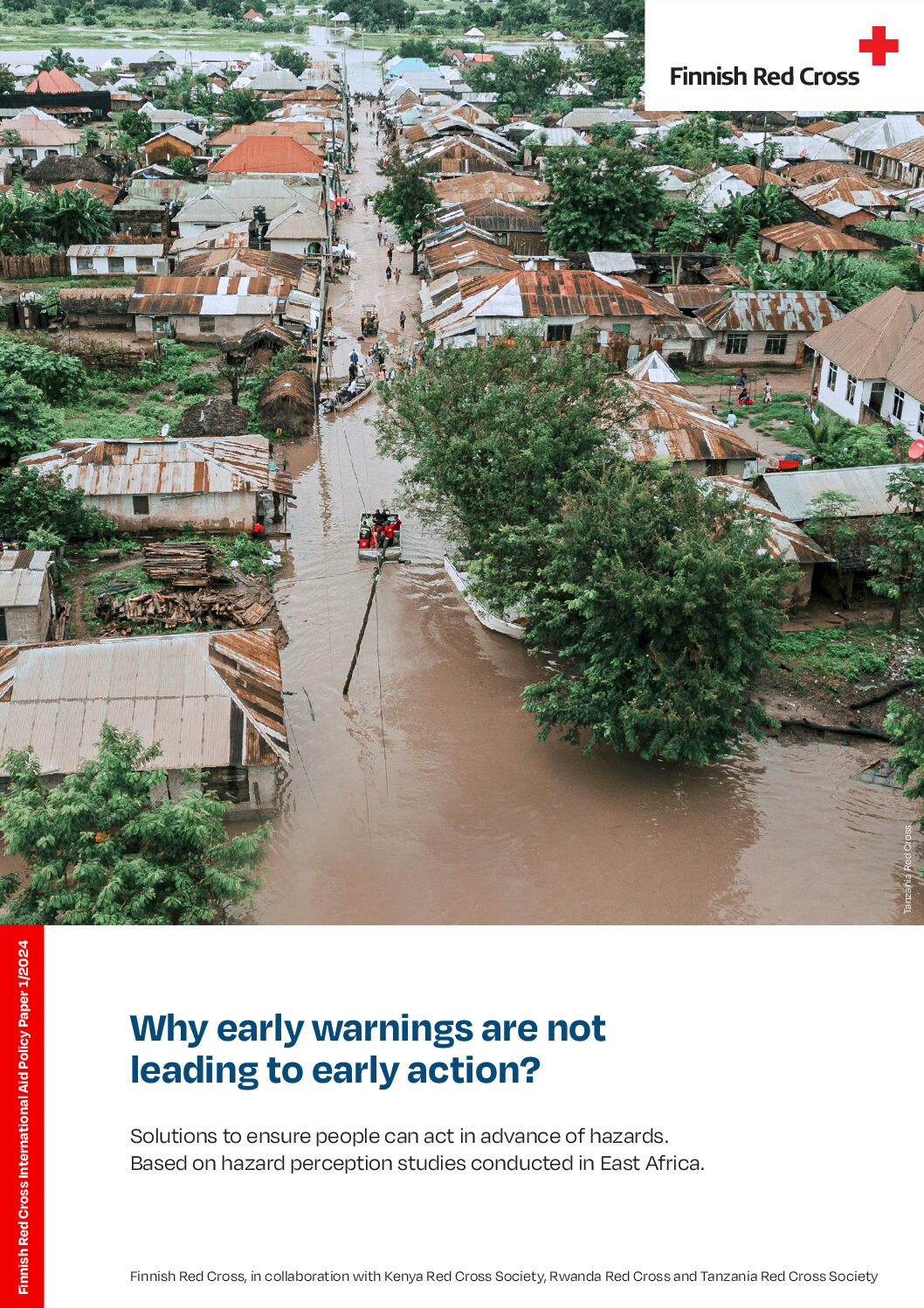Why early warnings are not leading to early action?

The frequency and intensity of extreme weather events such as floods and landslides are increasing due to climate change. More accurate information is available from scientific sources, including through meteorological agencies, on weather events and potential future hazards. This information is vital for early warning systems, which are effective ways to protect people, livelihoods and assets from hazards. But only if warnings lead to early action.
National Red Cross and Red Crescent Societies and a wide community of organisations and governments are committed to developing people-centred early warning systems. The key is to ensure that actionable information flows in time to the affected communities, and that people have capacities to act early and effectively. National Societies support their respective authorities in reducing and managing disaster risks and preparing for and responding to disasters when they happen. Their volunteers witness the devastating local impacts of climate crisis at first hand. National Red Cross and Red Crescent Societies strive to strengthen communities’ resilience to disasters and scale up their capacities to act early based on forecasts and local observations.
In 2022, the Finnish Red Cross started a new project with the Kenya Red Cross Society, the Rwanda Red Cross and the Tanzania Red Cross Society focusing on the information flow between meteorological and disaster management agencies and local communities to enable early action.
As a foundation for the project, the Finnish Red Cross commissioned four case studies to understand how people perceive hazards and how early warning systems can be improved from the local perspective in the target areas in Kenya, Rwanda and Tanzania. This policy paper draws from these studies, and presents findings and recommendations that can be useful for actors working to ensure that early warning systems are people-centred and warnings lead to life-saving action.
Read the full paper for findings and recommendations on improving early warning systems.
Finnish Red Cross International Aid Policy Paper 1/2024 (July 2024).
